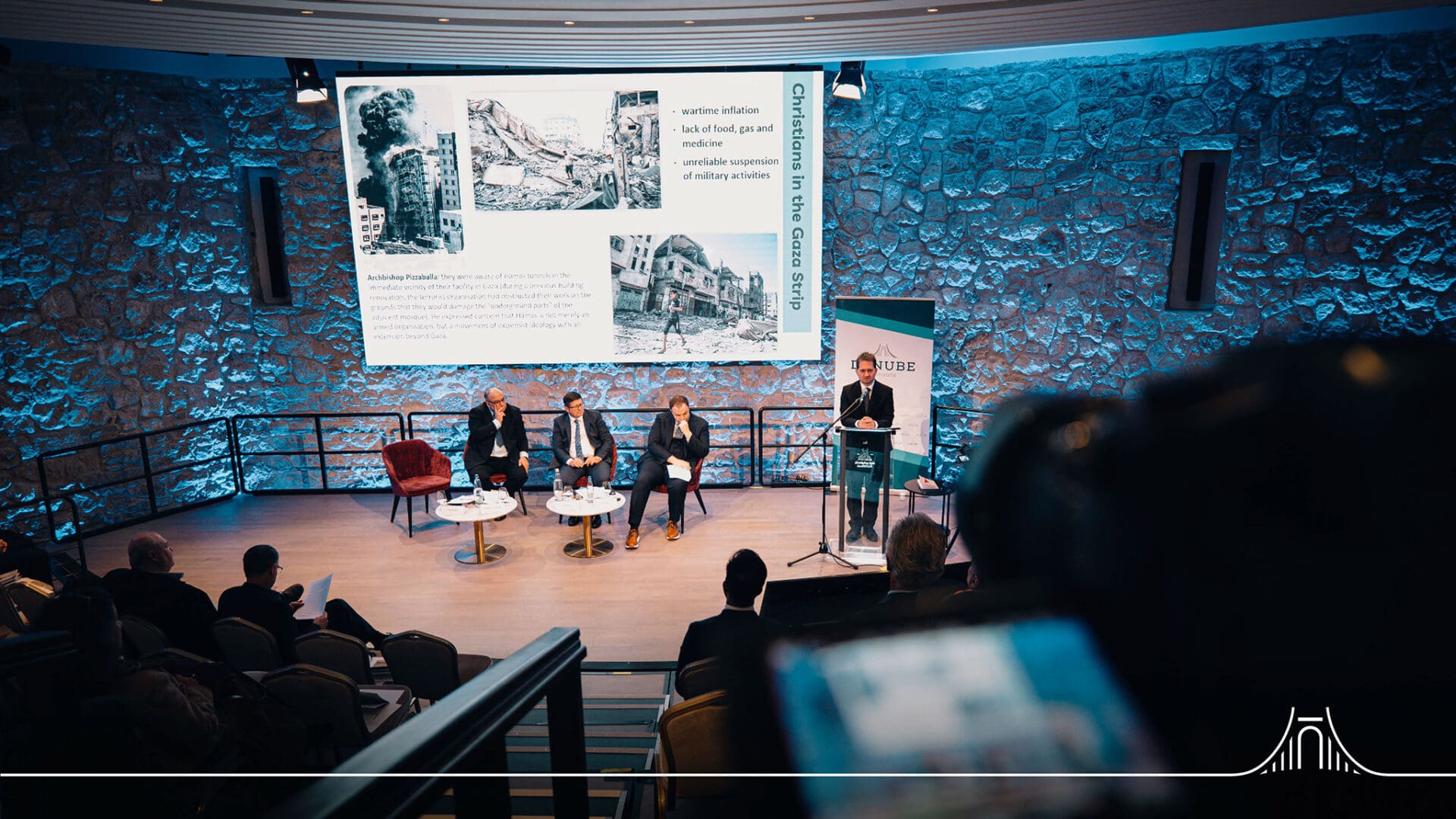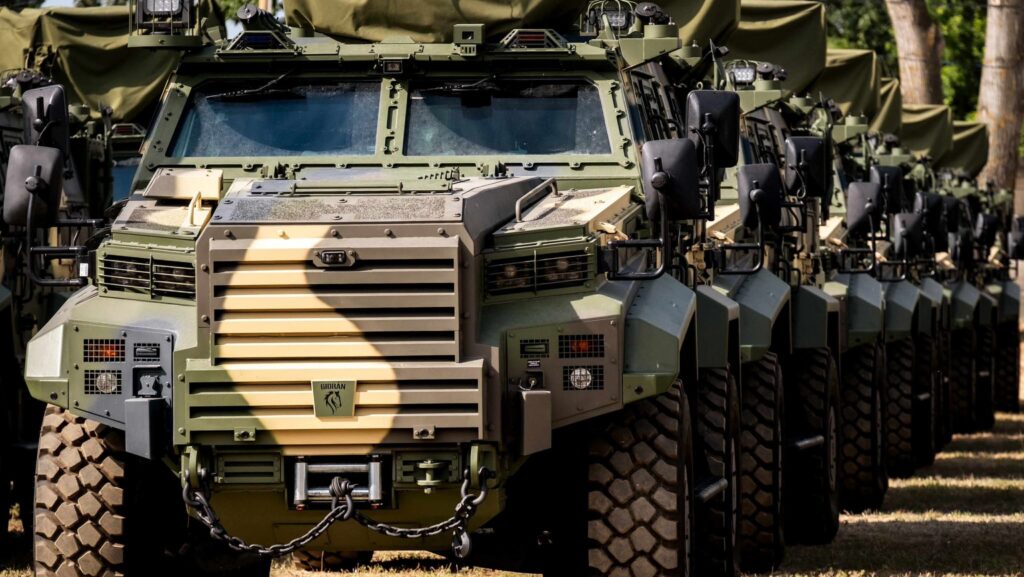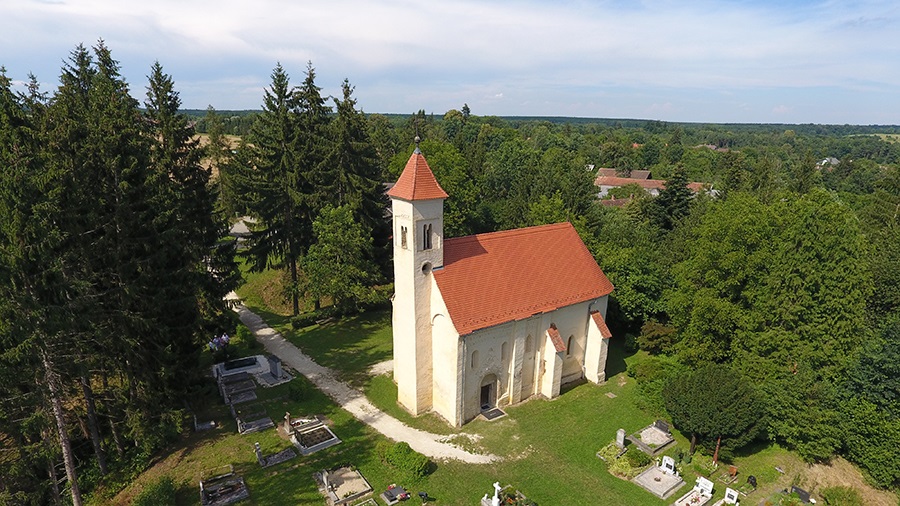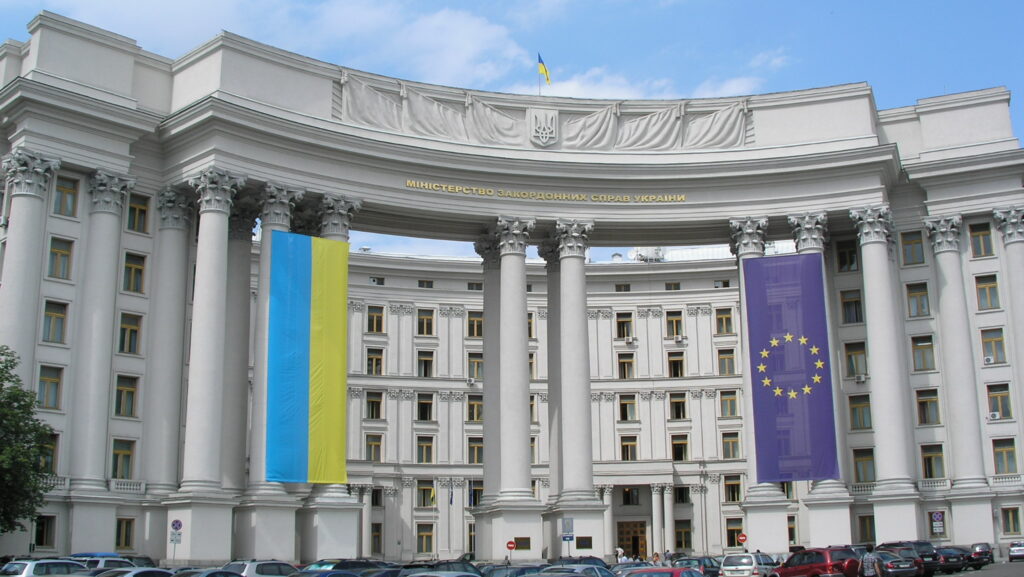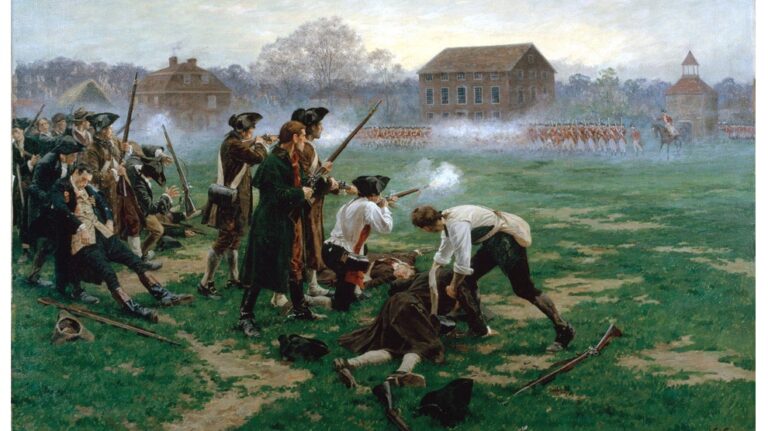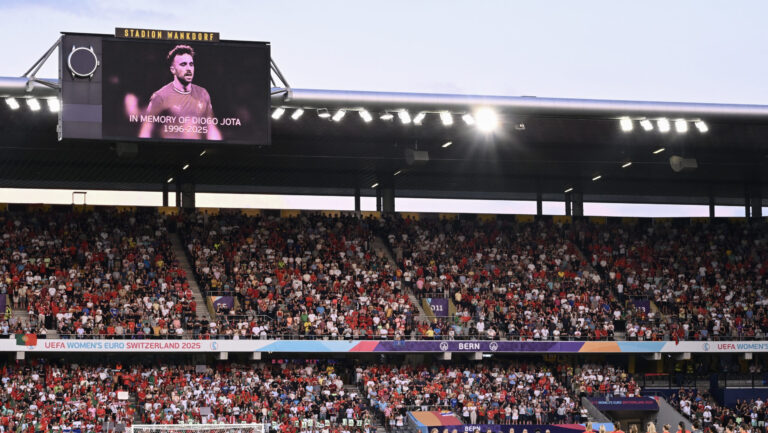On 27 November, the Danube Institute held a conference titled Israel, the War and the Christian Communities in Crisis?, which brought together an international group of scholars, security experts and religious leaders from Israel and Hungary to discuss the twin crises. The conference featured keynote speakers and experts such as Yacov Hadas-Handelsman, Ambassador of Israel to Hungary, Báruch Oberlander, Head of the Budapest Orthodox Rabbinate and Chabad Lubavitch in Hungary, Dr Andor Grósz, President of Mazsihisz, the Hungarian Neolog Jewish community. Or Yissachar, the Head of Research at the Israel Defense and Security Forum, also delivered a speech and bore witness, while Robert C. Castel, a well-known Israeli Hungarian security expert, sent a video message to the conference from Kibbutz Nirim, which was affected by Hamas’s brutality on 7 October.
The conference had been conceived long before 7 October. Before the attack, it was intended to bring together an international group of scholars, Jewish leaders and Church officials from Israel and Hungary to discuss the massive Israeli protests against the Judicial Reform legislation, which evolved into broader confrontations between religious and secular Israeli Jews as well as a wave of attacks on minority communities. However, as this internal drama was unfolding, on 7 October, Hamas launched a savage terrorist strike inside Israel that led to roughly 1300 casualties and took more than 240 Israelis hostage. To address the Israel–Hamas war, an additional panel titled ‘Israel at War’ was added to the conference.
Despite Divisions, Israelis Are Now United in the Face of the Aggression
‘In Israel, there is unity against violence,’ His Excellency Ambassador Yacov Hadas-Handelsman highlighted in his speech. Ambassador Yacov Hadas-Handelsman said that since the outbreak of the war in Israel, there has been a noticeable increase in support for the government, even among Muslim communities, which was unprecedented. According to the diplomat, this shows that people have united in the face of the Hamas aggression, putting aside national divisions.
The ambassador also spoke about the unique situation of Christian minorities in Israel amidst the broader challenges faced by Christians in the Middle East. He highlighted that Christianity originated in the Holy Land and has maintained an important presence in the Land of Israel. The ambassador emphasised that the Israeli Christian population grew from less than 40,019 50 to over 180,000. He contrasted that with the decline of the Christian population in the Palestinian territories, from 15 per cent of the total in 1950 to less than 2 per cent. The ambassador also touched on the fact that in recent times, there has been a wave of attacks on Christians in Israel targeting churchmen and pilgrims, as well as church properties and religious sites and emphasized that
the Israeli government has condemned these attacks and described them as an utter disgrace.
The Israeli ambassador also highlighted that ‘rockets don’t know the difference between Muslims, Christians and Jews’ and the massacre, which Hamas inflicted on Israel slaughtered people indiscriminately; also, Muslims and Christians alike were kidnapped. To conclude, Ambassador Hadas-Handelsman highlighted that a ‘strong Israel in the Middle East is also a reliable, supportive element for the Christian minorities.’ The ambassador noted that the Hungarian government is engaged in helping Christians in the Middle East and Israel cooperate with Hungary on several aspects, which signifies a joint moral and political interest and commitment on the part of the two countries.
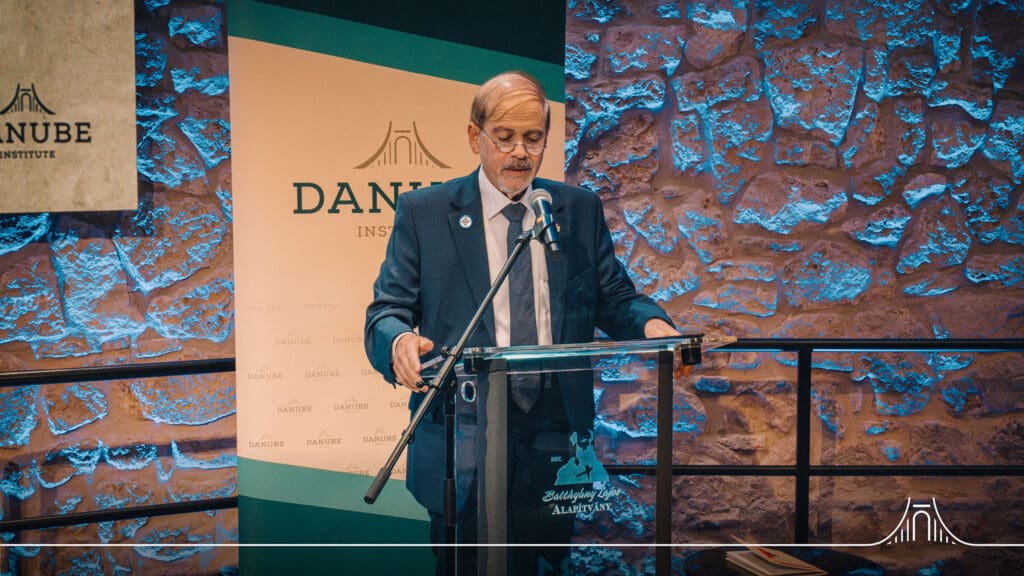
Rabbi Baruch Oberlander discussed Judaism’s perspective on other religions, particularly Christianity, emphasizing two main components of the Jewish faith: belief in one God and the 613 commandments specifically for Jews.
Rabbi Oberlander also highlighted that before 7 October, there were religious and political divisions that seem to have been forgotten, with people having put aside debates and disagreements and started to show love and empathy to each other. The Rabbi also stressed that the current ceasefire and the release of prisoners are of the utmost importance, as ‘every human life is sacred.’
Analysing the situation of the Hungarian Jewry, Dr Andor Grósz said that, in his opinion, it is a very positive trend that antisemitism, unlike in other European countries and North America, has not increased drastically in Hungary as a result of the war in Israel, and that members of the Jewish community can continue to live and practice their religion in peace. In his view, although there is antisemitism in Hungary, it is not at a worrying level, and the repercussions of the conflict have not been able to bring crowds to the streets.
Crises in Israel
In the first panel discussion of the conference titled Crises in Israel, Jonatán Megyeri, editor-in-chief of Neokohn, Dr Gábor Balázs, associate professor and historian of ideas, and Menachem Keren-Kratz, an independent scholar at Israel’s Bar Ilan University, discussed the topic.
Experts in this panel agreed as well that there have been recent divisions between many groups in Israel, which have been temporarily put on the back burner after the war broke out on 7 October.
Jonatán Megyeri stressed that major lies about the conflict spread in the media must be called out.
For example, he highlighted that contrary to the characterization of it in some media reports, Hamas terrorists are not freedom fighters and that the organization exploits the Palestinians and the civilian population of the territory. Mr Megyeri also pointed out the claim that there is a clear separation between civilians and terrorists in Gaza. Mr Megyeri visited the area recently and spoke with Israeli soldiers who said that one of the hardest things in Gaza is to distinguish between terrorists and civilians, as they are often hard to tell apart as there is civilian support for Hamas. Mr Megyeri also noted that it’s important to clarify that all Arab states do not support Hamas’ activities and that many countries in the region are reluctant to accept refugees, and most of them would prefer to focus on negotiations.
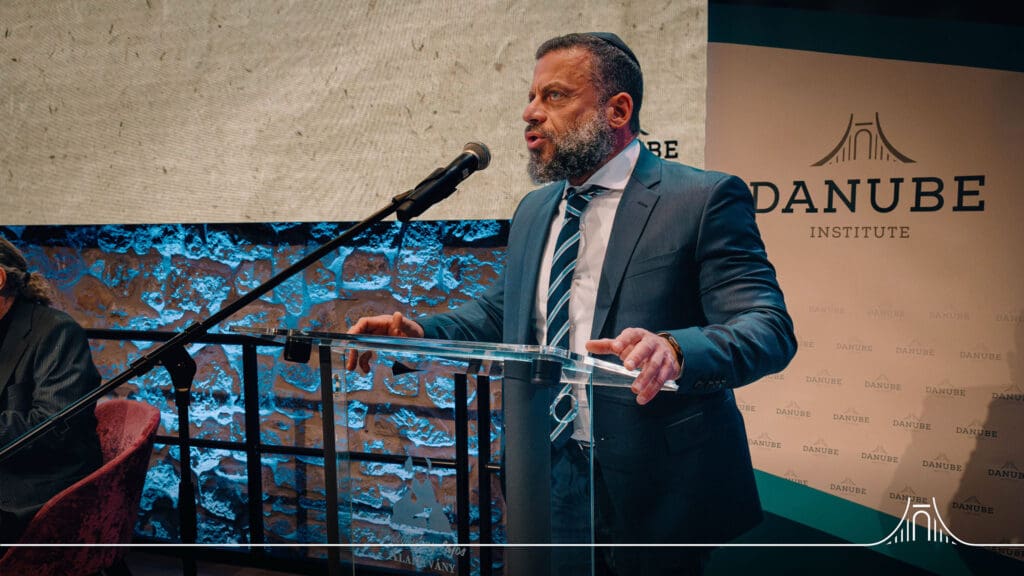
Dr Gábor Balázs highlighted that just over a month ago, everyone thought it was clear what the most severe crisis the State of Israel had faced in years was the reform of the Supreme Court. The expert argued that since the 7 October massacre, this crisis has understandably been almost forgotten, but it is far from certain that it will not be at the centre of Israeli society again after the war against Hamas. Dr Gábor Balázs highlighted that althgouh there were a number of legal issues currently being debated in the country, ‘the conflict is mainly over the notion of Judaism and democracy’, he said. In his presentation, the expert outlined the history of legal reform in Israel and the fundamental values of democracy and Jewishness.
To connect the topic of the first and second panels, Menachem Keren-Kratz spoke about the differences between Orthodox Jews and Christians in Israel. He gave examples of historical events to put the current situation into a context. ‘Most Jews, including Orthodox Jews, have accepted the fact that there is a Christian community in Israel, either European or Arab, and there was no intention to confront Christians unless they felt provoked by the Christian community,’ he said. The expert said that to this day, Orthodox Jews oppose only those Christian movements that promote their religion or exclude or discriminate against Jews. However, he stressed that these types of activities are directed against both Christians and Jews in the country. In his view, believers of all religions must accept and tolerate each other’s customs, as this is the only way to preserve peaceful coexistence in the long term.
Israeli Jewish–Christian Relationship in Crisis?
The speakers of the second-panel discussion were Dr Juergen Buehler, President of the International Christian Embassy in Jerusalem (ICEJ), Péter Kovács, Director General of Hungary Helps Agency, Prof Dr Tibor Grüll, Head of the Department of Ancient History at the University of Pécs, and Péter Morvay, journalist at Hetek.
Dr Juergen Buehler, in his video message from Jerusalem, stated that Jewish-Christian relations in Israel are not in danger and are stronger than ever before in history. Dr Buehler highlighted that, as in all relationships, there are, of course, challenges and situations that require creative solutions, but all of these contribute to a solid foundation for relations between the two peoples. Dr Buehler highlighted that despite concerns,
there is no government policy against Christians in Israel
and that the challenges faced were more a result of continuous changes in government.
Mr Buehler identified three main reasons for hostilities: historical Christian anti-Semitism, a lack of education in some yeshivas, and the perception that historic churches are not loyal to Israel. Despite these issues, the government’s general attitude is described as friendly towards Christians, committed to addressing challenges and ensuring the welcome of Christians of all denominations in Israel. ICEJ’s president suggests that after the war, attitudes towards the Jewish people need revisiting for better understanding and cooperation.
Péter Kovács approached the issue by describing the current situation in Gaza. He said that, according to his diplomatic and NGO sources, there are currently about 1,100 Christians in the Gaza Strip who have not yet been allowed to leave. The zone is in ruins, with nothing left but buildings, including churches and homes, reduced to rubble. Those who are still there must be prepared for the possibility that their homes could be bombed at any moment and must be ready to flee practically around the clock. They do not have enough food and fuel, so even if they have a car, they cannot use it to escape.
In his presentation, Prof Dr Tibor Grüll highlighted the deep cultural, religious and historical ties between Jews and Christians, their common historical roots, and described the most significant moments, such as the siege of Jerusalem (66-70 AD), when Christians took refuge in Pella, the period before the destruction of Jerusalem, the period of Christian and Jewish persecution, and the role of cities such as Nicopolis, Eleutheropolis and Beth Guvrin, which were key to the life of the communities.
The panel discussion was closed by Péter Morvay, who spoke about the release of hostages in Gaza and his experiences of previous visits to the country. Mr Morvay started his speech by reflecting on his first visit to Israel 30 years ago, just a few years after Hungary re-established its diplomatic connections with the State of Israel. In his opinion, the recognition of Jerusalem as the capital of Israel by the international community, and in particular by the United States of America under Donald Trump, played a decisive role in the development of Christian–Israeli Jewish relations today. The journalist also noted that there are a lot of Jewish people both in Israel and in the Diaspora who realise that they have an alliance and a genuine friendship with Christians, as we could see in recent weeks after the bloody and barbaric pogrom on Simchat Tora.
Mr Morvay also underscored that Jews and Christians have a common enemy:
the Jihadists, radical Islam that wants to annihilate Jews and Christians to create the Global Caliphate. He emphasized that it is one important reason why Jews and Christians need each other, even if they have different approaches to certain issues.
Israel at War
The third and final panel of the international conference focused on the war itself, looking at events from Israel’s perspective. Robert C. Castel, an Israeli-Hungarian security expert, gave a video message from Kibbutz Nirim, which, as Hungarian Conservative also reported, was brutally attacked by on 7 October. As for the Israeli war itself, Castel distinguished three different levels: the level of global geopolitics, the level of regional conflict and the level of a local-bilateral conflict between Israel and the Palestinians. At the global level, he stressed that the West’s global deterrent has been weakened, which was clear not only in the case of this war but also during the Russo–Ukrainian war. At the level of regional conflict, the long US–Iran war from 1979 played an important role, while at the bilateral-local level, the conflict can be traced back mainly to the Abraham Accords and the expected normalization of Israeli–Saudi relations and Palestine’s reaction to it. According to the expert, there were several reasons for the outbreak of the war, including failures on the part of political and military decision-makers and Western elites. Castel emphasized the need for European and Western countries to be prepared for potential conflicts.
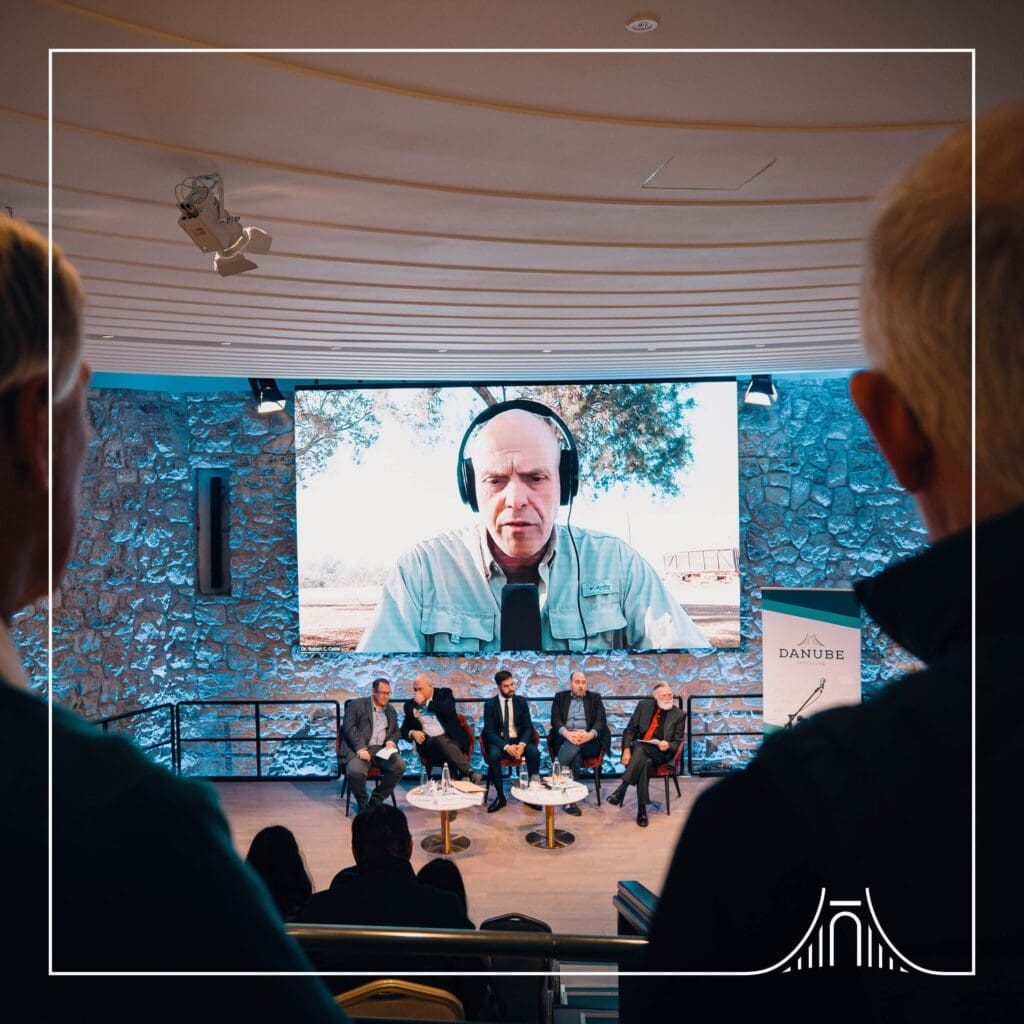
Dr Or Yissachar, Head of Research at the Israel Defense and Security Forum, came to the conference not only as a guest but also as a witness, having experienced first-hand what has been happening in Israel since 7 October. The main topic of his presentation was freedom and stability in the Middle East, with the ongoing war being one of the key issues. Yissacar underscored that this war was much worse than the Yom Kippur War, the last war declared on Israel 50 years ago, as that was a ‘fair fight’ between two armies. In contrast, on 7 October, Hamas attacked Israeli civilians sleeping in their homes, dancing and going about their lives, with the terrorists invading their communities, massacring people and taking them hostage. Yissachar highlighted that ‘the clear lesson from this tragedy is that nobody will be able to take national security for granted.’ The Israeli expert also emphasized that Israel hadn’t defined its objectives clearly before this war, but now it aims to win. Yissachar stressed that
only an Israeli victory could bring peace to the whole Middle East
as, unlike in the West, in the Middle East there is no compromise and signing a paper won’t be enough to resolve a conflict.
Dr Tamás Péter Baranyi, Strategic Director of the Hungarian Institute of Foreign Affairs, gave a presentation on Hungarian–Israeli bilateral relations and the Middle East and the Palestinian issue in general. In his speech, he stressed that despite the geographical distances, there are many points of connection between the two countries, including the promotion of foreign trade, the strong emphasis on sovereignty and the commitment to the nation. On the Middle East, Baranyi stressed that the Hamas terrorist attack has put the Palestinian issue back on the agenda, after having been pushed to the back burner in the Arab world.
Dr Attila Novák, a historian, former diplomat and National University of Public Service lecturer, echoed this sentiment, agreeing that the renewed focus on the Palestinian issue has mobilized Arab communities. On the war, he stressed that Israel’s main goal was to achieve long-term stability and analysed its impact on the Hungarian (Israeli) diaspora. He also underlined that the attack by the Hamas terrorist organisation on 7 October did indeed require a military response from the attacked side, but it is also important to clarify that Hamas is not one with Palestine.
According to Dr László Csicsmann, lecturer at Corvinus University of Budapest, since the 2010s, there has been global competition in the Middle East, where five countries compete with each other, but none of them is able to dominate the region. Since 2022, with the normalization of Israeli-Saudi relations, a relative de-escalation has begun, one of the signs of which was the conclusion of the Abraham Accords. However, it is questionable what the future holds for the Gaza Strip, for example, or indeed for the region as a whole, once the war is over.
Dr Matthew Lewitt, Director of the Counterterrorism and Intelligence Program at the Washington Institute for Near East Policy, gave a video presentation on the relationship between Hamas and Hezbollah and the latter’s role in the war. At the beginning of his presentation, he stressed that the 7 October attack was a much bigger shock for Israel than the 11 September 2001 terrorist attacks on the US. He stressed that restoring a sense of collective security in the country will be a major challenge for the Israeli government. He reminded that the situation between Israel and Hezbollah is still tense; while Hezbollah would like to be part of the war, it cannot engage in a full-scale war with Israel, despite the gradual escalation, because Lebanon, of which Hezbollah is de de facto ruler, is suffering from a serious political, economic and social crisis. The expert stressed that
70 per cent of the Gaza population does not support Hamas or terrorist attacks against Israel,
and wants a complete withdrawal of Hamas from Gaza and its full disarmament.
The conference was closed by Prof Dr Tamás Dezső, Chairman of the Board of Trustees of the Batthyány Lajos Foundation, who analysed Europe’s geostrategy, not only in the context of the Israel-Hamas war but also in the context of the Russia-Ukraine war. With regard to the war and the pro-Palestinian demonstrations, he stressed that the demonstrators were not condemning Hamas, nor were they even distinguishing between Palestine and Hamas. The same is true on the international scene, where neither the UN nor its General Assembly has condemned Hamas or called it a terrorist organisation.
You can watch the video recording of the conference on Danube Institute’s Youtube channel:

